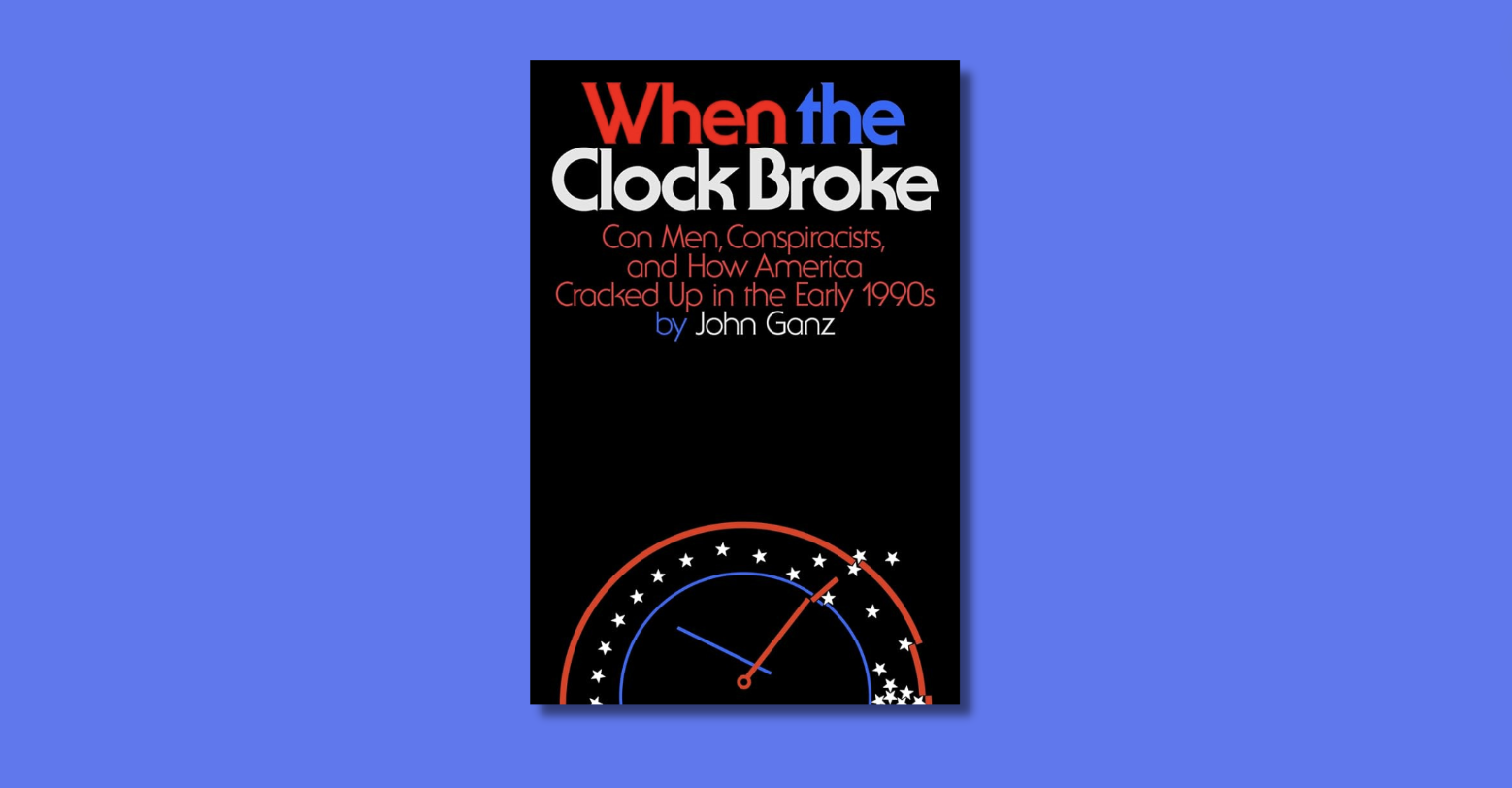
Things Got Weird: On the Early ‘90s Crack-Up
Americans are good talkers these days. Prodigious at least. Our screens and links and tabs are filled with it. Talk, talk, talk. Streams of mouthy TikTokers and YouTubers. News channels transformed into neverending panel discussions. Novels dictated by insistent first-person narrators. Besides the economics of an easily replicable product—talk is cheap, we’re always told, usually in prelude to a fight—what accounts for all the blather? Is it because everyone has something to say? Or is it because regardless of the question—gaping income inequality, an increasingly irritable biosphere, or the appeal of a red-faced demagogue promising retribution to red-hatted crowds—nobody seems to have a good answer?
Things were not that different at the end of George H. W. Bush’s presidency, according to John Ganz’s When the Clock Broke: Con Men, Conspiracists, and How America Cracked Up in the Early 1990s . An eye-opening history of a similarly fractious, talky time populated by mountebanks and manias after the exhausted conclusion of Reaganism, it tells in both widescreen and granular form how the country’s final era of consensus was blown to smithereens. Ganz’s book fits with recent works on American conservatism like Jacob Heilbrunn’s America Last: The Right’s Century-Long Romance with Foreign Dictators ; both track the movement’s authoritarian tendencies and find parallels to the present moment. But When the Clock Broke is more compelling when depicting a country weirding itself into uncharted waters.
Ganz starts with Klansman David Duke’s successful 1989 campaign for the Louisiana state legislature (a “little Hitler […] emerging in the swamps of the Deep South”) and ends in 1992 with Pat Buchanan’s white supremacist advisor Sam Francis invoking Antonio Gramsci to call for an all-out assault on what he termed “the enemies of American civilization.” (A call which was picked up nearly unchanged decades later by the current breed of smash-it-all culture warrior.) In between, Ganz tells a story not only about racial revanchism but how the populist waves unleashed by economic tumult and general malaise crashed around the country in unexpected, harrowing, and darkly comedic ways.













/cdn.vox-cdn.com/uploads/chorus_asset/file/24110035/226347_Kindle_SVasani_0004.jpg)






